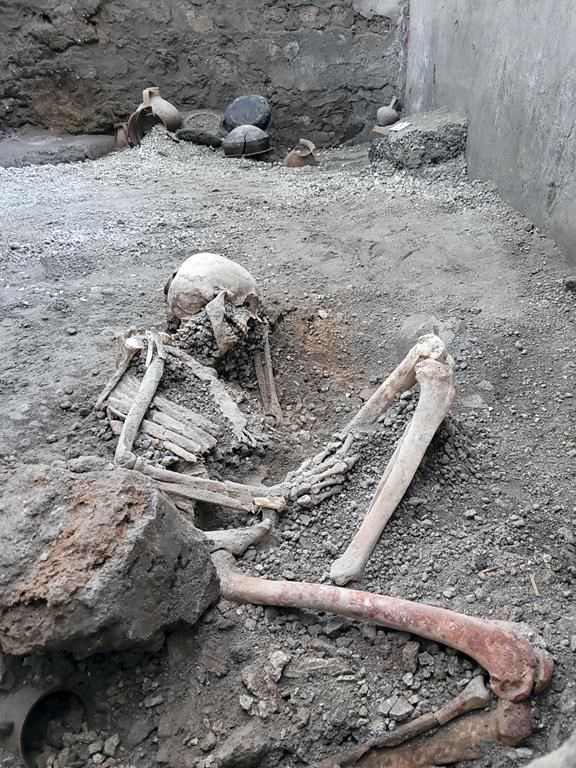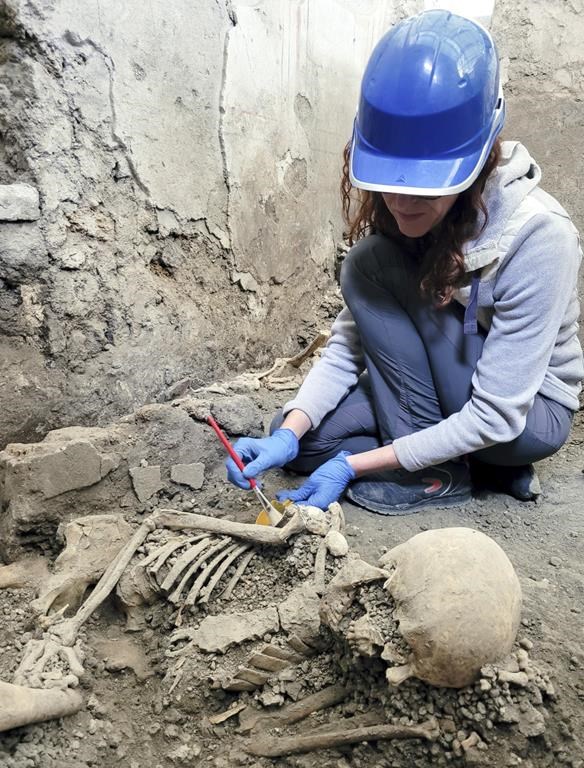Skeletons found in Pompeii ruins reveal deaths by earthquake, not just Vesuvius’ ancient eruption
Advertisement
Read this article for free:
or
Already have an account? Log in here »
To continue reading, please subscribe:
Monthly Digital Subscription
$0 for the first 4 weeks*
- Enjoy unlimited reading on winnipegfreepress.com
- Read the E-Edition, our digital replica newspaper
- Access News Break, our award-winning app
- Play interactive puzzles
*No charge for 4 weeks then price increases to the regular rate of $19.00 plus GST every four weeks. Offer available to new and qualified returning subscribers only. Cancel any time.
Monthly Digital Subscription
$4.75/week*
- Enjoy unlimited reading on winnipegfreepress.com
- Read the E-Edition, our digital replica newspaper
- Access News Break, our award-winning app
- Play interactive puzzles
*Billed as $19 plus GST every four weeks. Cancel any time.
To continue reading, please subscribe:
Add Free Press access to your Brandon Sun subscription for only an additional
$1 for the first 4 weeks*
*Your next subscription payment will increase by $1.00 and you will be charged $16.99 plus GST for four weeks. After four weeks, your payment will increase to $23.99 plus GST every four weeks.
Read unlimited articles for free today:
or
Already have an account? Log in here »
Hey there, time traveller!
This article was published 16/05/2023 (920 days ago), so information in it may no longer be current.
MILAN (AP) — The discovery of two skeletons buried beneath a collapsed wall in the Pompeii archaeological site point to deaths by powerful earthquakes that accompanied the devastating eruption of Mount Vesuvius in the first century, experts said Tuesday, in addition to the victims of volcanic ash and gas.
The two skeletons believed to be men at least 55 years old were found in the Casti Amanti, or House of Chaste Lovers, beneath a wall that collapsed before the area was covered in volcanic material. The area was likely undergoing reconstruction work at the time of the eruption in A.D. 79, following an earthquake a few days earlier.
“In recent years, we have realized there were violent, powerful seismic events that were happening at the time of the eruption,” said Gabriel Zuchtriegel, director of the Pompeii Archaeological Park.

New archaeological techniques and methodology “allow us to understand better the inferno that in two days completely destroyed the city of Pompeii, killing many inhabitants,” he added, making it possible to determine the dynamic of deaths down to the final seconds.
More than 1,300 victims have been found in the archaeological site south of Naples over the last 250 years.


